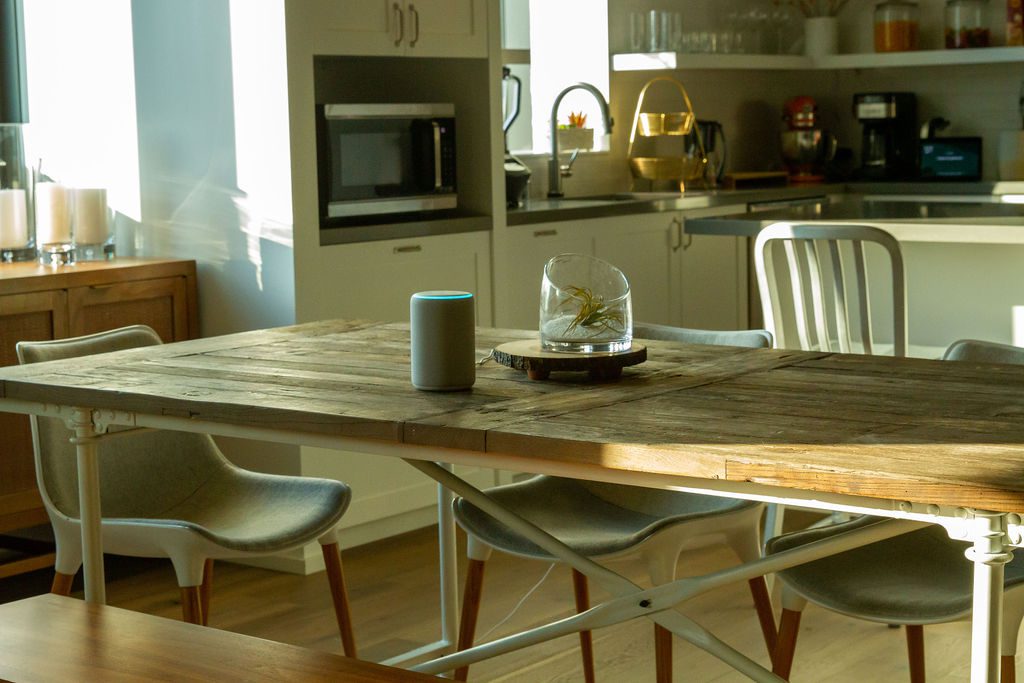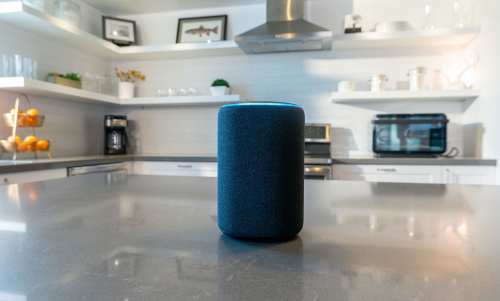Many apartment renters are squeezed out of the smart home experience simply because they don’t own their dwelling. They are limited in their ability to control lights, shades and thermostats often. Amazon is trying to change that with its new Alexa for Residential program designed to allow multi-dwelling unit (MDU) renters to utilize the popular voice control service the same way a homeowner can.
According to the National Apartment Association, 84% of renters want an apartment with smart home amenities—61% of whom said they would pay a monthly fee for a voice assistant. Today, integrators offer smart home amenities to apartments, but they have not been able to offer voice as a part of that package—residents have always had to purchase, set-up, and configure their Alexa devices experiences themselves.
Alexa for Residential is an all-new service that makes it easy for property managers to set up and manage Alexa-powered smart home experiences throughout their buildings. With Alexa for Residential, residents walk in to a ready-to-use, Alexa-powered smart apartment, with no account or device setup needed.
From the moment they move in, residents can control their apartment’s smart home features, set timers and alarms, get the weather, news and more—all using just their voice. If a resident has an Amazon account, they can easily link it to access the full range of Alexa features, including the ability to call friends and family, listen to their music playlists and more.
At launch, Iotas, Stratis IoT and Sentient Property Services are the first smart home integrators to use Alexa for Residential, and will be opening multiple smart apartment residences across the U.S. this fall. Custom integrtors are often contracted with the property management firms for the installation and service of the smart home features.
What Is Amazon’s Relationship with Property Management Services?
“Our vision was to create a service that makes having an Alexa-enabled home accessible for anyone, regardless of whether they rent or own their home,” says Liron Torres, head of smart properties, Amazon Alexa. “Alexa for Residential goes beyond the smart home—it’s also enables properties to provide custom voice experiences for their residents, including information on amenities and custom services. We’re excited to be teaming up with Iotas, Stratis IoT and Sentient Property Services as we start realizing this vision, and look forward to expanding this experience to even more apartment residences across the U.S.”
In the case of Stratis, the company’s business model is recurring monthly revenue (RMR) based. The property manager is charged monthly for the use of the Stratis app, such as $15 to $25 per month, and they then pass along a marked-up fee to the renter, such as $65 per month. The Stratis app integrates with various device-specific third-party controls, including Google Nest, Leviton, Lutron, Honeywell and several others.
The apps like Stratis are convenient for property managers because now they no longer need to worry about a key for each unit, for example, but now can use the app for door lock control. That also means no longer fretting over lost keys.
Torres could not discuss any specifics of the business relationship between Amazon and Iotas, Stratis IOT and Sentient Property Services, so it is unclear if Amazon is getting a cut of that monthly RMR. That has not been Amazon’s business direction in the past. Instead, they aim to deploy as many Alexa devices as they can for the purposes of many money on the purchases made through the device.
Move-in Ready Alexa-enabled Smart Apartments for Renters
In the program residents don’t have to have an Amazon account, purchase any devices, or do the set up in the apartment. Residents will be able to ask Alexa to remind them when it’s recycling day, or play the news and weather every morning – and control the apartment’s smart home features.
They can also link their own Amazon account to enable full use of all available Alexa features. They will also be able to control and manage the device in their Alexa app alongside any other Alexa-enabled devices they already own.
Property managers do not have access to any customer data, and voice recordings are automatically deleted daily. If a customer links their personal Amazon account, they will have full control of their privacy settings as if the device was their own, with any preferences automatically applied. Residents can unlink their account at any time, and at move out, in-unit devices will be reset along with the rest of the smart home devices.
One-time Fee for Property Managers
In the program, property managers will be asked to pay a “one-time fee” according to Torres to deploy the hardware in the apartments. That will enable them to meet the growing demand for voice-enabled smart apartments and communities—with Alexa offered as a permanent amenity in the unit.
Previously, installing voice-enabled experiences for apartment complexes was time consuming and costly, as property managers had no way to reset or manage multiple devices at once. Each time a resident moved out, the property managers would need to reset each device individually, or purchase new devices.

With Alexa for Residential, Alexa-enabled devices are now permanent fixtures in the home—property managers can remotely reset devices to default settings when residents move out, while also ensuring that Alexa’s integration with the smart home remains intact.
But what about theft of the Echo devices? When asked, Torres agreed that built-in in-ceiling devices for housing Echo Dots, like those made by Vanco and others, could solve that potential theft problem, but obviously would require a more labor-intensive upfront investment by the property owner.
Alexa for Residential also allows properties to offer custom voice experiences such as allowing residents to manage rent, maintenance requests, amenity reservations, and more, through voice. Property managers can also use Alexa-enabled devices in vacant units to answer common questions (i.e., “What is the square footage of this unit? How much is the monthly rent?”), enable self-guided tours, or demo the smart home features available in each unit.
“We’re delighted to deliver the first platform to provide fleet management solutions for Amazon Alexa products,” said Felicite Moorman, CEO of STRATIS IoT. “Solving challenges in complex buildings requires the most innovative partners to co-create solutions that deliver unparalleled, seamless resident and tenant experiences. With ease of execution for our property management pioneers, this is a home run. We’re proud to collaborate with clear technology leaders and these innovations represent the commitment and dedication of Amazon to this complex and exciting new technology frontier.”
“As an IoT provider serving up solutions for the multifamily industry, we’re all about creating convenience, efficiency, and ease-of-adoption for residents and management teams alike,” said Sce Pike, CEO of IOTAS. “Integrating Alexa for Residential into our platform is a perfect fit because it facilitates an even more seamless and delightful smart community experience on both sides of the equation.”







